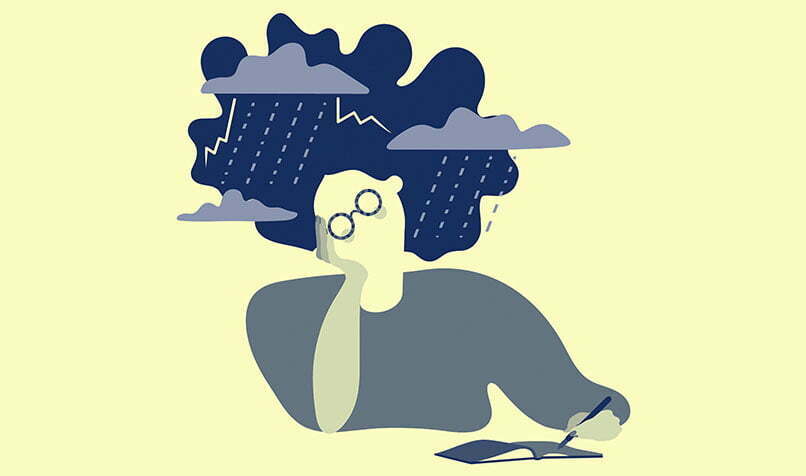A new bill out of the Oregon kingdom legislature — yes, that legislature — permits public school students to take five excused “intellectual-fitness days” off from college over a 3-month duration. It makes no strive to distinguish between between a manic episode and the stress an ill-prepared scholar would possibly feel about an imminent geometry. “Mental health” is a euphemism, while intellectual illness — schizophrenia, bipolar disease, etc. — Has that rather inconvenient feature of meaning something.

How many “mental-health days” do you watch that will be spent with the aid of college students attending to a psychotic wreck? The invoice changed into hawked by collecting formidable, nicely-meaning Oregonian high schoolers searching to enhance the nation’s dismal suicide rates. While I changed into, first of all, disposed to enroll in the obligatory refrain of uncritical adulation that greeted their success — the youngsters are our destiny, they’re converting the arena, and so forth. — The invoice isn’t accurate. Regardless of its backers’ admirable appeal, it will exacerbate the troubles it purports to alleviate.
It is a horrific invoice. Benignly positive, but it’s nonetheless terrible, as a minimum to the quantity that it allows statements like the one Debbie Plotnik of Mental Health America made to the AP: “We need to mention it’s simply as OK to take care for intellectual-health motives as it is to care for a damaged bone or a bodily illness.” This distinction between “mental health,” as Plotnik describes it, and bona fide intellectual infection is essential.
Here, the motte: The acutely suicidal, the delusional, the manic-depressives and different college students with severe mental ailments must be allowed to overlook college to take care of signs and symptoms that get up from their relative situations. The Bailey: Teenage angst, “stress,” bad vanity, and short-term unhappiness are the same as “a damaged bone.” And what precisely is “intellectual fitness”? D. J. Jaffe writes the mental infection policy for the Manhattan Institute and even refers to how elusive the idea can be:
Social dreams . . . Have been arbitrarily wrapped into the mental health narrative: enhancing grades, finishing poverty, reducing divorce fees, assisting people in benefiting comfort with their gender identity, decreasing quotes of bullying, and growing employment. Plotnik would have probably been able to declare a factor plausibly if she said mental infection.
She could argue that schizophrenia, bipolar disorder, and a brief listing of other conditions have biological components that cause them too much, like “bodily contamination.” But she stated, “mental fitness.” And in so doing, she prescribed helplessness in the face of ordinary malaise, helplessness probably to worsen the very “intellectual health” troubles whose existence, it turns out, is the raison d’etre of her company.
The very premise of the invoice — that days off from college will bog down the suicide hassle —misdiagnoses the motive of the suicide epidemic. Does sapping youngsters in their grit and clear up, indulging the timid impulse that tells them they’re no longer sturdy enough to go to records magnificence nowadays, honestly convince them that their lives are worth living? There is a morsel of fact in the inebriated-uncle sentiment that “our “grandparents didn’t ‘mental-health days,’ and they became out just quality.” Bec” use they didn’t they did.
If a kid is suicidal — for any motive, whether or no longer a mental illness afflicts them — they should be in a health center, not school. Suppose a child has a veritable situation with schizophrenia, bipolar disorder, fundamental depressive disease, severe tension, or obsessive-compulsive disease and is symptomatic. In that case, they need to not be in college, both. But the presumption that the common student at an Oregon public school doesn’t suffer from this disorder is teetering on the cliff of mental breakdown is immediately untrue and ruinous. It minimize scholar’s internal basin of resilience, saps him of the grit and resolve that the sector demands, and assures him that the fleeting emotions of existence are scientific phenomena to be handled through a few nonprofit govt. That kind of questioning is evocative of the put-up-asylum mania that swept the US, wherein psychiatrists all, however, cease their attention on the severely mentally ill in prefer of indistinct crusade” for “preve”t” on” “emotional health” and “intellectual h” alt.” Our collective experience with the culmination of deinstitutionalization should disabuse us of their approach.
The students call their rules a victory against the shadowy forces of “S” enigma,” that oft-invoked, continually-calumnious indictment of the American public, that implicit derogation of ordinary humans for the plight of the mentally ill, as it’s society’s fault that the homeless guy at the intersection of forty seconds and 8th hears voices, as even though if America has been nicer mental infection would leave. Breceived’tived’t.
This is a nonpermanent triumph for a non-earnings established order that has lined its pockets with a rhetorical campaign of euphemistic nothings “bout “intellectual f”fitness” as those identical schizophrenics and manic-depressives line the streets in droves, as asylums maintain to reduce and ivy furrows up their as soon as-vaunted walls. Billions of bucks are poured into anti-stigma campaigns while the neediest move is untreated.
